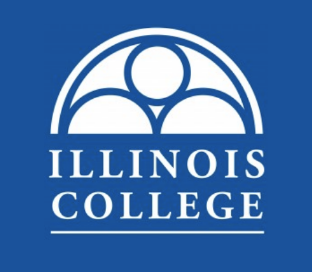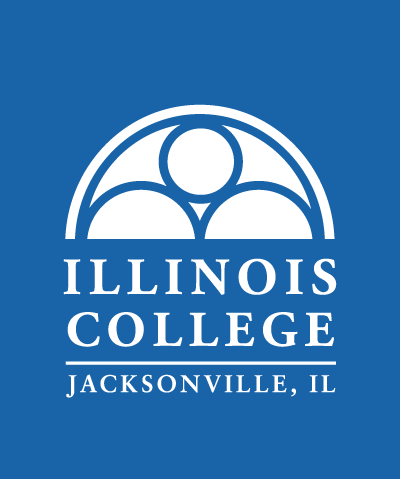Resources and Support for Pregnant & Parenting Students
Title IX prohibits discrimination against pregnant and parenting students and ensures reasonable modifications for students experiencing pregnancy, childbirth, false pregnancy, miscarriage, termination of pregnancy, lactation, and related medical conditions, including recovery. Pregnancy and related conditions are treated similarly as temporary disabilities. The Title IX Coordinator verifies the medical needs of the student and works with the Center for Academic Excellence to offer reasonable modifications so the student can participate in their educational programs and/or activities.
Sufficient medical information must be provided by a licensed healthcare provider to enable the Center for Academic Excellence to reasonably determine the nature, date, time, and duration of any medically necessary pregnancy-related absence, need, or limitation. The student may need to sign a medical release with their healthcare provider in order for the College to obtain this information. Non-medically necessary related accommodations do not require medical documentation. For additional information refer to the Pregnant and Parenting Student Policy and review the additional information provided at the additional links.
Information for Faculty | Campus Lactation Spaces | Pregnant and Parenting Student FAQs
Students who wish to request pregnancy-related accommodations should contact the Title IX Coordinator to begin the process. Employees may reach out to the Director of Human Resources for reasonable accommodations or access.
Information for Faculty
Title IX manages student pregnancy accommodations as part of the College’s Title IX requirements. A student in your course may require pregnancy accommodations for the current semester. Pregnancy accommodations are required by the Department of Education, Office of Civil Rights, which requires:
- Students are not penalized for absences based on pregnancy or medical complications related to a pregnancy. This includes participation points for those missed days.
- Please work with the Title IX Coordinator so we can find an accommodation that fits the student’s functional limitations while maintaining the academic requirements of your course.
- To prevent pregnancy accommodation discrimination claims, please allow the Title IX Coordinator, in collaboration with the Center for Academic Excellence, to coordinate the pregnancy accommodation. Please do not question the student about their medical condition or pregnancy accommodation nor self-accommodate the office without working with our office first. Absences beyond two weeks will be reviewed and addressed by the Center for Academic Excellence in collaboration with you and/or your Chair.
Campus Lactation Spaces
Designated lactation spaces are listed below. Each space includes a mini fridge and microwave.
- Tanner Hall - Basement, East end of hallway
- Lincoln Hall - HUB, Room 1096
Students should contact the Title IX Coordinator in advance if they need to utilize a lactation space outside of these designated spaces, or if there are any issues with accessing the spaces.
Pregnant and Parenting Student FAQ
- I just found out I’m pregnant…now what?
-
You should schedule an appointment with the Title IX Coordinator to discuss specific concerns and available resources. Depending on your needs, medical documentation may or may not be required, therefore it is important to meet with the Title IX Coordinator to understand your rights.
- I just found out my partner or spouse is pregnant. Can I get support too?
-
Students who are not the birthing parent can also provide documentation if they have medically necessary absences to receive verification. This can include doctor appointments, if the medical provider provides documentation reflecting that the student's absence is medically necessary for particular dates/times. The student may need to sign a medical release with their healthcare provider in order for the Title IX Coordinator to obtain this information.
- What if I am hospitalized or there is an emergency?
-
Please communicate directly with your faculty or program official as well as the Title IX Coordinator. In the meantime, reasonable efforts will be taken to preserve your academic participation until you are able to provide documentation from your healthcare provider.
- I have a doctor’s appointment during class. Can I get that excused?
-
Students should attempt to schedule any appointments around their class schedule. However, if an appointment is medically necessary at a date/time that interferes with class attendance, you can provide the documentation from your medical care provider to the Title IX Coordinator and they will verify the absence and submit communication for an excused absence to your instructors.
- Do I have to tell my professors?
-
You are not required to share any medical information directly with your professors. You can provide the medical documentation to the Title IX Coordinator who will then work with the Center for Academic Excellence to describe in a letter what accommodations are needed based on the medical necessity. Any medical diagnosis or details is not disclosed, except to the extent that information is needed to implement the accommodations. For example, if you are on bedrest for a period of time and can only participate virtually in classes, that virtual participation will be disclosed but not the underlying reason for the bedrest.
- How does the verification process work?
-
- You provide documentation from your healthcare provider in accordance with the Pregnant and Parenting Student Policy to the Title IX Coordinator that documents any medically necessary needs for the modification(s). The documentation should be submitted to the Title IX Coordinator via email or in-person, and can be updated at any time if your situation changes. If you have a desired modification, you should include that. The documentation must be sufficient enough to allow the Title IX Coordinator and/or Center for Academic Excellence to reasonably understand the nature, date, time, and duration of any medically necessary needs related to pregnancy or related conditions.
- In some situations, more information may be needed from your healthcare provider to understand your medical needs and the modifications that may be reasonable for your situation, in which case you will need to sign a patient release form with your healthcare provider.
- The Title IX Coordinator, in collaboration with the Center for Academic Excellence, will review the documentation and, if the medical documentation is sufficient, provide you with a written notice verifying the necessary modifications or accommodations. The Center for Academic Excellence may consult with your healthcare provider, members of your academic program, and you as part of this individualized process. This process usually takes a few business days but may take up to two weeks.
- The Center for Academic Excellence will provide you (and often your program director or academic program contact) with a letter outlining the modifications needed that you can discuss with your academic program leadership to determine a plan of action. The letter does not contain details about your physical or medical condition, other than information needed to provide the modification or accommodation.
- Your academic program official(s) reviews the modifications and provides you options for completing your academic requirements. If there is more than one option, it is your choice which to pursue. If you cannot reach agreement or if either of you have any questions, you can reach out to the Title IX Coordinator.
- I have a scholarship/financial aid. Will that be affected?
-
Pregnant/parenting students still need to follow the requirements for any scholarships or other forms of financial aid. If you have scholarships or financial aid, you should speak with your advisor or Student Financial Services prior to making decisions about your enrollment or taking a leave.
- I am breastfeeding. Where can I find a private place to pump?
-
Students have the right to a clean and private space, not a bathroom, for lactation. Some buildings have dedicated spaces, while others may be able to provide a private space on an as-needed basis, if available.
Designated lactation spaces are listed below. Each space includes a mini fridge and microwave.
- Tanner Hall - Basement, East end of hallway
- Lincoln Hall - HUB, Room 1096
Students should contact the Title IX Coordinator in advance if they need to utilize a lactation space outside of these designated spaces, or if there are any issues with accessing the spaces.
- Can I make up all the course work I missed?
-
Generally speaking, yes. Following verification of submitted medical documentation, the Center for Academic Excellence will provide a letter to the student verifying the date(s) and/or coursework excused due to pregnancy. The student can show this letter to the faculty/academic department chair, who should offer reasonable alternative(s) under Title IX that still maintain the academic integrity of the assignment/course. These alternatives can include opportunities to make up the work, retake quizzes, have additional time to complete assignments, virtual participation in a course, utilize the incomplete process, retake the course at a future date, etc. If faculty determine that there is more than one alternative available for a particular item, it will be the student’s choice as to how to complete that. The student and/or faculty can contact the Title IX Coordinator with any questions about such alternatives.
However, there may be times where a course requires in-person attendance or activities such as lab classes or rotations. Some circumstances warrant that a student take a leave instead of being able to make up the work. Individual students can speak with the Title IX Coordinator and/or their program advisor for more information. - What if I am in a clinical placement (off-site, practicum, internship, etc.)?
-
Many pregnant students continue in their off-site rotations and clinical assignments during pregnancy. However, there are some situations which may require an adjustment. For example, a rotation where a pregnant student may not be able to be exposed to radiation, must be within a certain radius of the hospital at a given time, or must complete a rotation before being able to advance to the next one. In many cases, alternative placements may be found, but in some cases alternative sites may not be available that fit within the student's medical needs. Students are encouraged to contact the Title IX Coordinator and/or their clinical director proactively to plan for rotations and clinical sites, given the complexity of scheduling those rotations.
- What if I’m taking online classes?
-
Students in online programs follow the same process as others. The documentation can be provided to help reschedule exams during delivery, excuse absences, etc. Depending on the nature of the course requirements, documentation may need to reflect that the student was not able to access a computer or log on during a particular period of time.
- What should I do if my professor won’t let me make up my work?
-
Once you have provided your medical documentation and received the verification letter from the Center for Academic Excellence, you and your professor should discuss the academic accommodations. Your faculty may wish to give you alternate assignments or exams to preserve the integrity of the academic work. However, if you feel your faculty are not giving you appropriate options, you can contact the Title IX Coordinator directly. It is important that your medical documentation be accurate to ensure you have the appropriate accommodations.
- What if my situation has changed?
-
You can provide updated documentation to the Title IX Coordinator at any time and your verification letter may be updated.
- What about childcare and bonding after delivery?
-
Title IX protects students for what is medically necessary related to pregnancy, childbirth, conditions that develop related to pregnancy, and recovery from these. Lactation is also covered under Title IX. Childcare, baby-bonding, and caring for a spouse are not typically protected under Title IX. If long-term conditions develop such as postpartum depression or permanent medical issues, you may apply for accommodations through the Title IX Coordinator.


